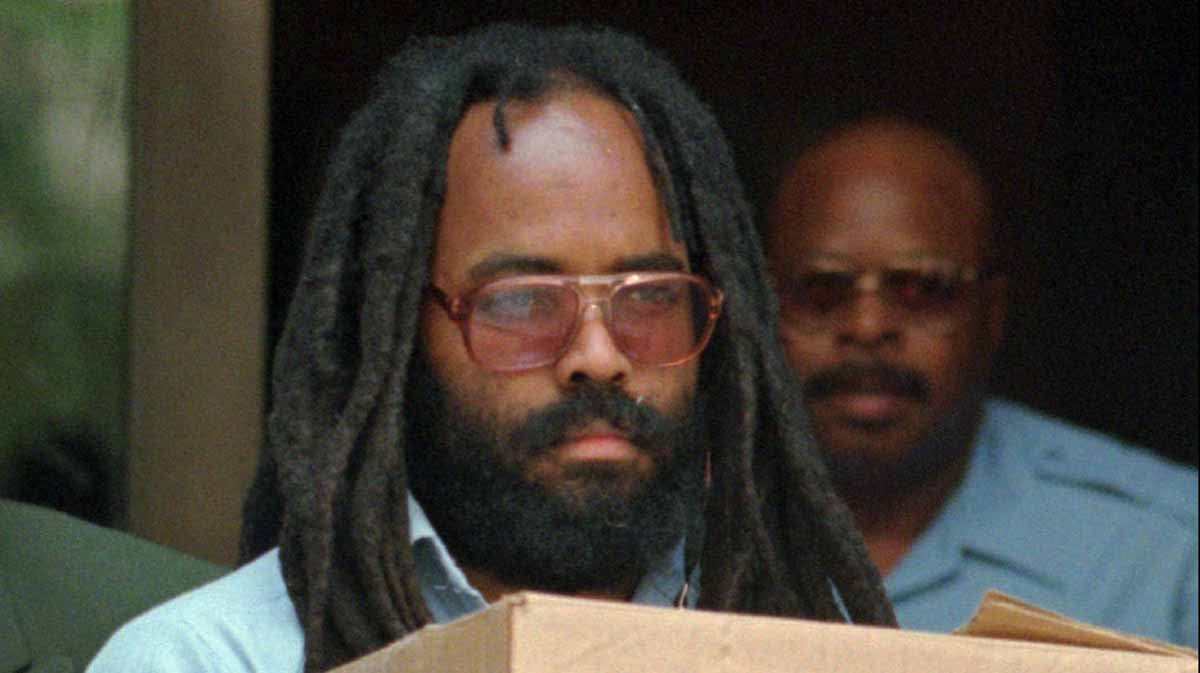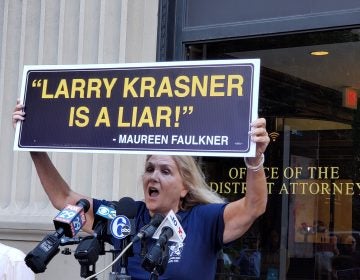Krasner reverses position, no longer opposes new hearing for Mumia Abu-Jamal
Philadelphia District Attorney Larry Krasner previously tried to block Abu-Jamal’s latest appeal, but now has changed his mind.

Mumia Abu-Jamal leaving a court hearing in 1995. (AP Photo/Chris Gardner, File)
Philadelphia District Attorney Larry Krasner is no longer trying to stop Mumia Abu-Jamal from having a chance to reargue his case in front of the Pennsylvania Supreme Court, the district attorney’s office announced Wednesday.
A judge overseeing Abu-Jamal’s case ruled in December that the world-famous activist convicted in the 1981 killing of a city police officer deserved a new hearing since one of the state Supreme Court justices who denied Abu-Jamal’s appeal had fought to keep him in prison during a previous career as Philadelphia’s top prosecutor.
That, the judge concluded, was a conflict of interest that deprived Abu-Jamal of his right to unbiased due process.
But Krasner pushed back, saying the opinion from Common Pleas Judge Leon Tucker was so broad that it had the potential to affect hundreds of closed cases. In a supplement to his opinion, Tucker elaborated on his ruling that Abu-Jamal did not receive a fair hearing because the former justice in question, Ron Castille, refused to recuse himself.
That expanded opinion was enough to put Krasner at ease. So now, Philadelphia prosecutors are not standing in the way of Abu-Jamal rearguing his case.
“Our decision to withdraw the appeal does not mean Mr. Abu-Jamal will be freed or get a new trial. It means that he will have the appeals that Justice Castille participated in deciding reconsidered by a new group of appellate court judges, untainted by former Chief Justice Castille participating in their decision,” Krasner said in a statement.
The evidence that rejuvenated Abu-Jamal’s case is a 1990 letter Castille wrote to then-Gov. Bob Casey urging him to more quickly sign the execution warrants for death row inmates “to send a clear and dramatic message to all police killers that the death penalty in Pennsylvania actually means something.”
Tucker said since Abu-Jamal did not know about the letter at the time of his appeal, he could not point to it as justification for Castille to recuse himself. And so, Tucker said Abu-Jamal deserves a new chance to make the case for his innocence to the state Supreme Court.
While Tucker focuses on how Castille should have stepped down from hearings involving death-row inmates, citing the 1990 letter, the judge also wrote that “the number of potential cases affected by recusal must not be a consideration when determining the guarantee of due process. That determination must be made on the basis of fairness, impartiality, and the appearance of propriety.”
Some Abu-Jamal advocates are puzzled by Krasner’s course reversal, seeing the supplemental opinion as amplifying, not narrowing, the original ruling.
“Tucker did not say anywhere that he’s limiting his opinion to a class of people. It’s simply not accurate,” said Rachel Wolkenstein, a former lawyer and longtime activist for Abu-Jamal. “But the withdrawal of the appeals does mean we won’t have to spend years supporting the fact that Mumia has new rights of appeal.”
WHYY is your source for fact-based, in-depth journalism and information. As a nonprofit organization, we rely on financial support from readers like you. Please give today.




